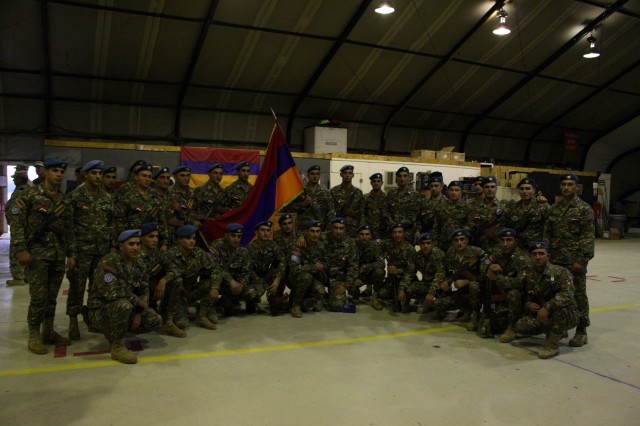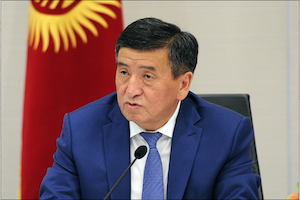Looking Beyond Armenia's Defeat in Nagorno-Karabakh
By Robert M. Cutler
December 7, 2020, the CACI Analyst
After over 25 years of diplomatic stalemate, notwithstanding the efforts of the Organization for Security and Cooperation in Europe (OSCE), and declarations on all sides that “there is no military solution” to the Karabakh conflict, Azerbaijan has successfully implemented a military solution and taken territorial control of almost all of its lands occupied by Armenian forces in the early 1990s. The event not only inaugurates a new era of international security in the South Caucasus. It actually opens the door to improved relations between the two countries, if realistic approaches based on their inevitable cohabitation of the neighborhood can be found.

Kyrgyzstan's Election Controversy: Cause for Concern?
By Jacob Zenn
November 9, 2017, the CACI Analyst
On October 16, Kyrgyzstan announced that the winner of the country’s presidential election with 54 percent of the vote was Sooronbay Jeenbekov. The election nonetheless received criticism for the way it was carried out from international organizations such as the Organization for Security and Cooperation in Europe (OSCE). Other commentators have noted that the departing president, Almazbek Atambayev, also invested personal and state resources to support Jeenbekov’s election. Kyrgyzstan’s reputation as the “island of democracy” in Central Asia has suffered a setback. Amid other concerns about jihadist radicalization in the country, Kyrgyzstan will struggle to reclaim its reputation as a democratic model for the region, especially in the eyes of its neighbors.

Israeli PM’s visit to the two sides of the Caspian Sea
By Avinoam Idan
February 6, 2017, the CACI Analyst
Israel’s Prime Minister Binjamin Netanyahu made a landmark visit to Azerbaijan and Kazakhstan in December 2016. The Israeli Prime Minister's visit reflects Israel’s growing interest in Central Asia and the Caucasus, a region that is part of Israel's greater strategic environment. Israel's interest in Kazakhstan focuses on its trade potential, its regional and international status, and its position as a vital link in the Chinese Belt and Road Initiative. Azerbaijan's geographical location, its role as a significant energy exporter, and its security approach have been foci of the close relations that have developed between Baku and Jerusalem over the years. The Prime Minister's visit reflects the continued deepening of ties with Azerbaijan.
Uzbekistan-Tajikistan: game over, but what is the score?
By Farkhod Tolipov
December 15th, 2016, The CACI Analyst
Uzbekistan’s and Tajikistan’s independence in 1991 raised the Shakespearean “To be or not to be?” question concerning the ambitious construction of a dam on the mountainous Vakhsh river in Tajikistan, which would embody the Rogun Hydro Power Station. Uzbekistan – a downstream country – has permanently and vigorously rejected and resisted the project referring to numerous risks associated with Rogun for all downstream countries. Uzbekistan’s president has been the principal political antagonist of this project. Two months after his death in September 2016, Tajikistan’s president has decided to move on with the project.
China deepens its presence in Georgia via its “One Road, One Belt” initiative
By John C. K. Daly
December 12th, 2016, The CACI Analyst
On October 2, China and Georgia signed a preliminary free trade agreement (FTA), scheduled to take effect from the end of 2017, China’s first substantive FTA negotiations in Eurasia. The FTA’s 17 sections include trade goods, services, intellectual property rights and emerging issues like e-commerce, with the two parties agreeing to remove all tariffs for most of the two nations’ commodity trade, as well as pledging to open many service sector markets and improve bilateral trade laws while identifying key areas for enhancing cooperation.





